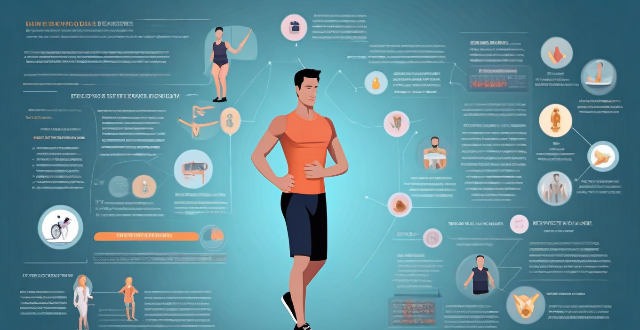Mental Life

What are the long-term consequences of untreated mental health conditions in women ?
The text discusses the severe and long-lasting consequences of untreated mental health conditions in women, which can affect their overall well-being, relationships, and quality of life. These consequences can be physical, emotional, and social, and they often compound over time. The most significant long-term effects include increased risk of chronic diseases, compromised immune system, sleep disorders, escalation of symptoms, self-medication, suicidal thoughts and behaviors, strained interpersonal relationships, workplace challenges, financial difficulties, reduced life satisfaction, limited participation in activities, and poor self-esteem. It is essential to recognize that these conditions do not improve over time without intervention and instead worsen, causing a ripple effect that touches every aspect of a woman's life. Early detection and treatment are crucial for managing mental health disorders effectively and preventing these long-term consequences. Seeking support from professionals such as therapists, psychiatrists, or counselors can provide the necessary tools and resources to address mental health concerns and improve overall well-being.

What is the importance of mental health in overall personal well-being ?
The text discusses the importance of mental health in overall personal well-being. It explains how good mental health can lead to better physical health, emotional stability, healthy social relationships, workplace productivity, and an improved quality of life. The article emphasizes the need for prioritizing mental health by seeking professional help when needed, practicing self-care, and engaging in activities that promote good mental health.

Is there a link between sedentary lifestyle and increased risk of mental health disorders ?
This article explores the link between sedentary lifestyle and increased risk of mental health disorders such as depression, anxiety, and stress-related disorders. It suggests that lack of exercise can contribute to these issues due to decreased endorphin release and higher cortisol levels. The article recommends increasing physical activity, taking frequent breaks from sitting, and practicing mindfulness and stress-reduction techniques to reduce these risks.

How does work-life balance impact women's physical health and well-being ?
The article discusses the impact of work-life balance on women's physical health and well-being, highlighting the following key points: 1. **Stress and Mental Health**: Work-life imbalance can lead to chronic stress, weakening the immune system and increasing the risk of mental health issues like anxiety and depression, which in turn can cause physical health problems. 2. **Physical Health**: An unbalanced lifestyle often results in a sedentary lifestyle and poor eating habits, leading to weight gain, obesity, and an increased risk of chronic diseases. 3. **Reproductive Health**: Excessive stress and unhealthy lifestyle habits can affect women's reproductive health, causing menstrual irregularities, infertility, and complications during pregnancy. 4. **Quality of Life**: Work-life imbalance can significantly impact a woman's quality of life, leading to feelings of dissatisfaction, reduced productivity, and strained relationships. Maintaining a work-life balance is crucial for ensuring that women's physical health and overall well-being are not compromised.

Are there specific exercises that help improve mental health ?
Exercises like yoga, meditation, aerobic exercise, resistance training, MBSR, and Tai Chi can help improve mental health by reducing stress, anxiety, and depression symptoms while promoting relaxation, self-awareness, and social interaction.

How important is mental health in managing a sports career ?
This article discusses the importance of mental health in managing a sports career. It explains how mental health affects an athlete's performance, recovery, team dynamics, off-field success, and personal growth. The article emphasizes that athletes with good mental health are more likely to set goals, work hard towards achieving them, and push through challenges. It also highlights the role of mental health in developing life skills that extend beyond an athlete's sports career. Overall, the article underscores the significance of prioritizing mental well-being for athletes to maximize their potential both as individuals and members of their teams.

How much exercise is needed to achieve mental rejuvenation ?
Achieving mental rejuvenation through exercise is a widely discussed topic in recent years, and the benefits of physical activity on mental health are well-documented. However, the question remains: how much exercise is actually needed to achieve these benefits? According to the American Heart Association, adults should aim for at least 150 minutes of moderate-intensity aerobic activity or 75 minutes of vigorous-intensity aerobic activity per week. This can be broken down into 30 minutes of exercise, five days a week. In addition to aerobic activity, it's also recommended that adults engage in muscle-strengthening activities at least two days per week. It's important to listen to your body and adjust your exercise routine accordingly. Practical tips for incorporating exercise into your daily routine include starting small, finding an activity you enjoy, making it a part of your routine, mixing it up, and setting realistic goals. By following these guidelines and tips, you can make exercise a regular part of your life and enjoy the many benefits it brings to both your physical and mental health.

How does regular exercise improve the quality of life ?
Regular exercise is vital for a healthy lifestyle, enhancing physical and mental well-being significantly. It strengthens the immune system, controls weight, prevents diseases, and increases energy levels. Mentally, it reduces stress, improves mood, boosts self-esteem, and enhances brain function. Socially, it promotes interaction, provides a sense of community, and encourages healthy competition. Regular exercise is an investment that pays lifelong dividends.

What impact has the pandemic had on mental health and well-being ?
The COVID-19 pandemic has significantly impacted mental health and well-being, leading to increased stress, anxiety, depression, insomnia, and substance misuse. Factors such as fear of infection, financial instability, social isolation, grief, and disruption of daily routines contribute to these issues. The situation emphasizes the need for accessible mental health services and support systems to address psychological needs during this challenging period.

Can physical activity improve mental health ?
Physical activity has been found to significantly improve mental health by enhancing self-efficacy and stress self-management skills. Research shows that engaging in physical activities can lead to a sense of accomplishment, boosting an individual's confidence in their abilities, which in turn fosters better stress management and contributes to enhanced mental well-being. This relationship is particularly important for adolescents, a demographic vulnerable to mental health challenges. Future research should focus on identifying specific types of physical activities that have a greater potential to enhance these skills, guiding the development of targeted interventions aimed at improving mental health through physical activity.

What are the benefits of sports for mental health ?
The benefits of sports for mental health are multifaceted and significant, contributing to an individual's overall well-being in numerous ways. The positive impact of physical activity on mental health is well-documented, offering a range of advantages that extend beyond the boundaries of physical fitness. One of the most compelling benefits of engaging in sports is the significant reduction in the risk of depression. Engaging in sports not only aids in combating depression but also helps in reducing anxiety levels. Regular exercise, especially if incorporated as part of a sports routine, can significantly improve sleep patterns. Participating in sports boosts energy levels, making individuals feel more vibrant and alive. Sports provide a platform for individuals to challenge themselves, overcome obstacles, and achieve goals. These experiences can build resilience, an essential trait for maintaining good mental health. Engaging in sports often involves interaction with others, whether as part of a team or through individual competition. This social aspect of sports can provide a sense of community and belonging, which is vital for mental well-being. Through sports participation, individuals can expand their social networks and establish support systems. Having a network of peers who share similar interests and goals can offer emotional and moral support, which is crucial for mental health maintenance. Team sports, in particular, offer opportunities to develop teamwork and communication skills. These skills are transferable to various aspects of life and can enhance interpersonal relationships, contributing to better mental health. Sports provide a structured environment for setting and achieving goals, which can boost self-esteem and a sense of accomplishment. Participating in sports requires discipline and time management, skills that are beneficial both on and off the field. Sports allow individuals to explore their limits and potential, pushing themselves to reach new heights.

Is there a connection between sports and improved mental well-being ?
The relationship between sports and improved mental well-being is evident in numerous studies, indicating that engaging in physical activities significantly contributes to an individual's overall psychological well-being. This connection can be analyzed from various angles, including physiological responses, social interactions, personal development, and the role of subjective class identity and health. Physiological responses to sports include endorphin release and stress reduction, while social interactions provide opportunities for teamwork and belongingness. Personal development through sports enhances self-esteem and discipline. The mediating roles of class identity and health also play a part in this relationship. Overall, sports participation positively affects individuals' subjective well-being through various mechanisms, enhancing their mental health and overall quality of life.

In what ways do sports promote mental and emotional growth in individuals ?
The article discusses the role of sports in promoting mental and emotional growth. It mentions that participating in sports can improve self-esteem, confidence, social skills, resilience, perseverance, time management, organizational skills, and stress reduction techniques. The benefits of sports extend beyond the athletic field and contribute to overall personal development and success in various aspects of life.

What role does physical exercise play in boosting mental focus ?
Physical exercise is not only beneficial for our physical health, but it also plays a crucial role in enhancing mental focus. Here's how: 1. Release of Endorphins: Regular exercise triggers the release of endorphins, which can help reduce stress and anxiety, leading to improved mental clarity and focus. 2. Increased Blood Flow to the Brain: Engaging in physical activities increases blood flow to the brain, delivering more oxygen and nutrients. This increased blood flow can help improve cognitive function, memory, and overall mental sharpness. 3. Better Sleep Quality: Exercise has been shown to promote better sleep quality and duration. Adequate sleep is essential for maintaining mental focus and concentration throughout the day. 4. Reduction of Stress and Anxiety: Physical activity helps lower levels of the body's stress hormones, such as cortisol. By reducing stress and anxiety, exercise allows individuals to maintain a clearer mind and stay focused on tasks at hand. 5. Enhanced Self-Confidence and Mood: Regular exercise can boost self-esteem and confidence, leading to a positive outlook on life. A positive mindset contributes to better mental focus and productivity. 6. Improved Cognitive Function: Studies have found that regular physical exercise can lead to improvements in various aspects of cognitive function, including attention, memory, and executive functions. These cognitive enhancements directly contribute to increased mental focus and concentration.

How do competitive sports impact mental health ?
Competitive sports have a significant impact on mental health, with both positive and negative effects. Positive effects include increased self-esteem and confidence, improved social skills and teamwork, stress reduction and relaxation, and goal setting and achievement. Negative effects include pressure to perform, fear of injury, burnout and overtraining, and unhealthy weight management practices. It is essential for athletes to manage the pressures associated with competition and prioritize their mental and physical health above all else. Seeking support from coaches, teammates, friends, and family members can also help athletes navigate the challenges of competitive sports and maintain good mental health.

What are some tips for women to manage work-life balance effectively ?
This topic provides valuable insights and actionable strategies for women aiming to achieve a healthier work-life balance. The suggestions range from practical time management tips to self-care practices, emphasizing the importance of setting boundaries, delegating responsibilities, and leveraging technology. By prioritizing personal well-being and embracing flexibility, women can enhance their productivity and overall life satisfaction. The text underscores the necessity of building a support network and regularly reflecting on one's approach to balance, highlighting that achieving an ideal work-life equilibrium is a dynamic and ongoing process.

How does physical exercise contribute to mental well-being ?
The text discusses how physical exercise contributes to mental well-being by releasing endorphins, boosting self-esteem, improving sleep quality, facilitating social interaction, and enhancing cognitive function. Regular physical activity can lead to long-term improvements in mental health, including reduced stress, anxiety, and depression, as well as better emotional stability and overall mood. Engaging in group sports or exercise classes provides opportunities for social interaction, which is essential for mental well-being, while achieving fitness goals can boost self-esteem and self-confidence. Better sleep patterns from exercise can lead to improved cognitive function and emotional regulation, while enhanced cognition may aid in the management of mental health conditions. Incorporating regular physical activity into your routine can promote mental well-being through these various mechanisms.

How can I balance work and personal life to ensure good health ?
Balancing work and personal life is essential for good health. To achieve this, one should set clear boundaries by defining priorities, communicating needs, establishing regular work hours, and learning to say no. Effective time management involves creating a daily plan, prioritizing tasks, taking advantage of downtime, and delegating when possible. Maintaining healthy habits such as regular exercise, eating well, getting enough sleep, and staying hydrated is crucial. Engaging in self-care activities like scheduling me-time, socializing, unplugging from technology, and seeking professional help if needed can also improve mental well-being. Continuously assessing and adjusting your routine based on what works best for you is key to achieving a healthy work-life balance.

What are the best exercises for improving mental health ?
Engaging in regular physical activities is crucial for maintaining good mental health. Some of the best exercises for improving mental health include cardiovascular exercises like running, cycling, and swimming; strength training exercises like weightlifting, resistance bands, and bodyweight exercises; and yoga and meditation practices like Hatha yoga, mindfulness meditation, and Tai Chi. By incorporating these exercises into your routine, you can reduce stress and anxiety levels while also improving overall well-being.

How do I manage my sports career effectively ?
Managing a sports career effectively involves physical training, mental preparation, strategic planning, lifestyle balance, health and wellness, networking and media relations, financial management, and continuous learning and self-improvement. Key elements include regular workouts, rest and recovery, nutrition, cross-training, visualization techniques, stress management, goal setting, mindfulness practices, long-term and short-term objectives, competition scheduling, sponsorship and partnerships, education and personal development, social life, hobbies and interests, regular check-ups, injury prevention, mental health support, building connections, media training, social media presence, budgeting, investments, tax planning, feedback, educational resources, and adaptability. By focusing on these areas, athletes can develop a comprehensive plan to manage their sports career effectively while maintaining a healthy and balanced lifestyle.

How can educational psychology aid in addressing students' mental health issues ?
Educational psychology can aid in addressing students' mental health issues by understanding the role of emotional intelligence, promoting a positive school climate, providing early intervention and support services, encouraging self-care and resilience, and facilitating collaboration between educators and mental health professionals.

Is there a specific age or stage in an athlete's life where they are most likely to reach peak performance ?
Athletes tend to reach their peak performance during their late teens to early twenties due to physical maturity, mental maturity, training and experience, and lifestyle factors. Physical maturity includes muscle development, cardiovascular fitness, and speed and agility improvements. Mental maturity involves focus and concentration, decision-making skills, and mental toughness. Training and experience lead to skill development, tactical understanding, and adaptability. Lifestyle factors such as nutrition, rest and recovery, and educational commitments also play a role in an athlete's potential for reaching peak performance.

In what ways does mental health support impact overall women's health ?
This text discusses the importance of mental health support for women's overall health, highlighting its impact on physical health, emotional well-being, relationships, and work performance. It emphasizes that good mental health can reduce the risk of chronic diseases, improve sleep quality, and help manage pain. Additionally, it mentions how mental health support can enhance emotional well-being by reducing stress, improving mood, and increasing resilience. The text also points out that mental health support can strengthen relationships through improved communication, better emotional regulation, and greater empathy. Lastly, it notes that mental health support can enhance work performance by improving focus, reducing absenteeism, and increasing job satisfaction.

Does exercise influence emotional regulation and mental well-being, which in turn affects cognitive processes ?
The article explores the relationship between exercise, emotional regulation, mental well-being, and cognitive processes. It suggests that regular physical activity can positively impact emotional regulation by reducing stress levels, improving self-esteem, and providing a healthy outlet for negative emotions. Exercise also contributes to improved mental well-being by alleviating symptoms of depression and anxiety, promoting relaxation, and providing opportunities for social interaction. These factors, in turn, influence cognitive processes such as attention, memory, problem solving, and decision making. Overall, the article concludes that incorporating exercise into daily routines can have numerous benefits for overall health and well-being.

How much exercise is needed to see mental health benefits ?
Regular physical activity is known to improve mental health, but the amount of exercise needed varies based on individual factors. The WHO recommends at least 150 minutes of moderate-intensity aerobic activity and muscle-strengthening activities twice a week for adults. Even small amounts of light activity can have mental health benefits, with moderate-intensity activities like brisk walking improving outcomes significantly. Consistency is key, and personalizing your exercise routine based on preferences and capabilities is essential.

What role does religion play in athletes' mental preparation for competitions ?
The role of religion in athletes' mental preparation for competitions is significant as it provides motivation, coping mechanisms, resilience, team cohesion, moral guidance, and spiritual fulfillment. Religion can serve as a source of inspiration and help athletes manage stress and anxiety. It also enhances their mental toughness and fosters unity among teammates. Moreover, religion guides athletes in making ethical decisions and offers spiritual fulfillment, contributing to their overall well-being. However, the impact of religion on athletic performance varies depending on individual beliefs and experiences.

How does work-life balance affect women's career growth and development ?
Work-life balance is crucial for women's career growth, reducing stress and increasing job satisfaction. Women face challenges achieving this balance due to societal expectations and lack of employer support. Strategies for achieving work-life balance include prioritizing self-care, seeking support from employers and coworkers, and building a strong support network.

Can team sports contribute to mental rejuvenation more than individual sports ?
Team sports may contribute more to mental rejuvenation than individual sports due to increased social interaction, motivation, and sense of belonging. However, individual preferences vary, and some people may find greater mental rejuvenation through individual sports or other activities that bring them joy and fulfillment.

What is the relationship between sports participation and improved mental health from a public policy perspective ?
The relationship between sports participation and improved mental health is complex and multifaceted, involving considerations of individual well-being, societal benefits, economic implications, and governmental responsibilities. Regular exercise through sports can lead to better physical health, which positively impacts mental health by releasing endorphins and reducing stress. Social interaction promoted by team sports and community building through sports events enhances social support networks crucial for mental health. From a societal perspective, promoting sports participation can serve as a preventive measure against mental health disorders, potentially reducing healthcare costs and improving educational outcomes. Economically, a healthier workforce and tourism opportunities from sports events can boost productivity and local economies. Governments have responsibilities in funding sports facilities, integrating sports into education, and running public awareness campaigns. Overall, fostering sports participation through supportive policies can significantly improve public mental health while offering broader societal and economic advantages.

What are the long-term effects of youth sports on mental health ?
Youth sports can have both positive and negative effects on mental health, including increased self-esteem, improved social skills, and reduced stress levels. However, pressure to perform, overtraining, injuries, bullying, and dependence on sports for identity can also have negative impacts. It is important for adults involved in youth sports to be aware of these potential effects and take steps to foster the positive ones while mitigating any negative impacts.